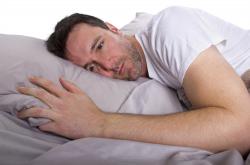Exercise And Tiredness
Does exercise make you tired or full of energy? It’s a bit of both, ironically, but learning how to exercise and when to exercise can pay huge dividends when you are recovering from fatigue.
Tiring or energizing?
Too much exercise is tiring, enough is energizing, too little is fatiguing. So how can you know how much is right for you? The most important thing is to listen to your body, and start slowly if you haven’t been exercising for a while. You should push yourself just enough to breathe harder, but not enough to exhaust yourself. A good trick is to aim for a little more each day, which means that, almost without noticing, you will build up to longer and longer periods of exercise.
The benefits of exercise are huge. It:
- Tones up muscles and helps you burn fat faster, thus enabling weight loss.
- Reduces stress and helps with emotional control because it uses pent-up energy from the strains of daily life.
- Lowers the strain on the adrenal glands.
- Creates greater flexibility and strengthens joints.
- Increases sex drive.
- Boosts mood and reduces depression.
- Delays ageing and prolongs life by suffusing your body with oxygen.
- Keeps your heart healthy by regularly increasing your pulse.
- Assists with creating refreshing sleep.
- Improves brain function.
Without exercise, you specifically risk:
- Weight gain and muscle loss.
- Increased stress and adrenal exhaustion.
- Lowering of mood and increased depression.
- Less oxygen in cells means poorer quality of health.
- Low grade or less restful sleep.
However, if you have been over-exercising and are tired, you should cut back on the number of hours or the level of exercise you do. Try to make it an enjoyable part of your day, which ideally you look forward to and miss when, for some reason, it’s not possible.
What exercise suits you best?
As a broad generalization, walking is one of the best exercises for anyone recovering from fatigue. Along with high quality nutrition, supplementation and good sleep, gentle walking will aid your recovery. There are also a number of other forms of moderate exercise, which you may like to add to walking as you begin to get more energy. They include:
- Golf
- Gardening
- Swimming
- Soft ball or volley ball
- Cycling
- Hiking
- Qi Gong
- Tai Chi
- Yoga
- Pilates
- Horseback riding
- Skiing
- Roller-skating or roller-blading
Strength training and weight-bearing exercises include:
- Aqua-aerobics
- Dancing
- Gardening
- Calisthenics e.g. push-ups
- Muscle-toning fitness classes
- Light circuit weight-training
- Yoga
It’s important to stretch and to warm up as well as to cool down and relax after taking exercise. Only exercise to the point of exhilaration, not to the point of exhaustion. Remember that your body will give you excellent feed-back on how much exercise to do if you learn to listen to it.
If you find your commitment to exercise wavering, you might like to get a friend to exercise with you. That way, you can both encourage each other and have company while you do it.
When should you exercise?
In general, exercise should be avoided near to bedtime as the body needs to wind-down for sleep. A gentle stroll would be all right, but anything more vigorous should be saved for the daytime hours.
Morning exercise is probably the best because it raises your metabolic rate for the whole day, thus enabling you to feel more energetic and burn calories more effectively. This is especially important if you suffer from hypothyroidism.
Bear in mind that sunlight and fresh air are also important for general health, so if you can, choose an activity which is out of doors, at least for some of them time.








.jpg)



Leave a comment